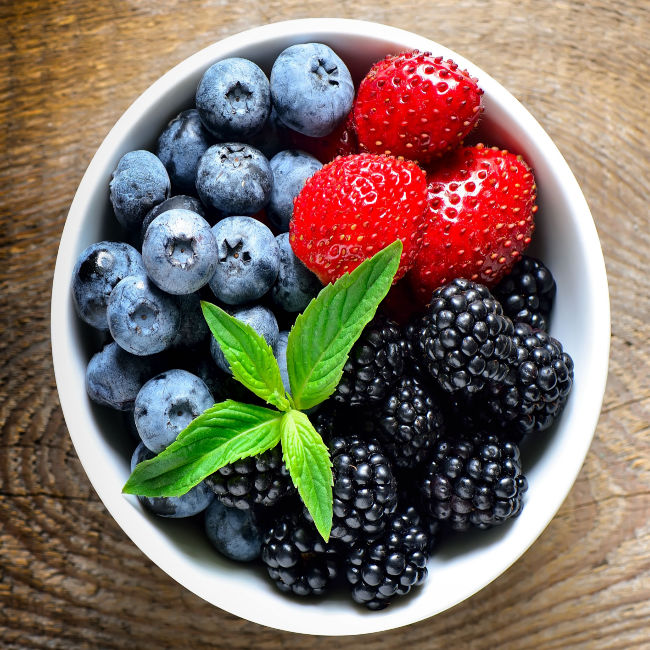
Antioxidants can protect your body and brain from disease
As it turns out, maintaining an antioxidant-rich diet is one of the best ways to protect your body and brain from diseases. That's because antioxidants help prevent oxidative stress, which Dr. Gans describes as "a type of damage caused my free radicals." If oxidative stress isn't kept at bay, a number of health complications can arise, including serious disease. "Oxidative stress has been linked to many chronic diseases, including heart disease, cancer, and Alzheimer's disease," he warns.
Another major upside to fighting oxidative stress from free radicals is the fact that antioxidants help reduce inflammation. "Inflammation is a natural response to injury or infection, but chronic inflammation can contribute to many health problems," Dr. Gans tells us. These include weight gain, diabetes, arthritis, and more. Luckily, he says that "antioxidants may help reduce inflammation by neutralizing free radicals and reducing oxidative stress."
Dr. Gans goes on to say that certain antioxidants, such as Vitamin C and E, can "help boost the immune system, which plays a critical role in fighting off infections and diseases." Incredible!
Then there's the brain-healthy benefits. According to Dr. Gans, antioxidants may help improve your cognitive function and reduce your risk of cognitive decline. "For example, a study published in the Journal of Alzheimer's Disease found that a diet high in antioxidants was associated with a slower rate of cognitive decline in older adults," he says.
Best sources of antioxidants
Okay, so there's no denying that antioxidants are an important part of any healthy diet. But what are a few of the best options out there? According to Dr. Gans, berries and almonds both make fantastic, antioxidant-rich snacks.
"Berries are an excellent source of antioxidants. Blueberries, raspberries, and strawberries are all packed with vitamin C and other antioxidants," he says, recommending that you add them to your cereal, oatmeal, or yogurt. They also work great in smoothies or on their own as a snack!
Nuts are another fantastic source of antioxidants. Dr. Gans recommends almonds, in particular, noting that they also pack in vitamin E and healthy fats. "Almonds make a great snack. Keep a bag of almonds in your purse or desk for a healthy snack on the go," he says. Additionally, just like with berries, these nuts make a great topping for your yogurt or oatmeal.
So, there you have it: not only are antioxidants great for you, but there are also so many ways to enjoy foods that are packed with them! "Overall, incorporating antioxidants into your diet may help promote a healthier brain and body by protecting against oxidative stress, reducing inflammation, boosting the immune system, and improving cognitive function," Dr. Gans concludes.


